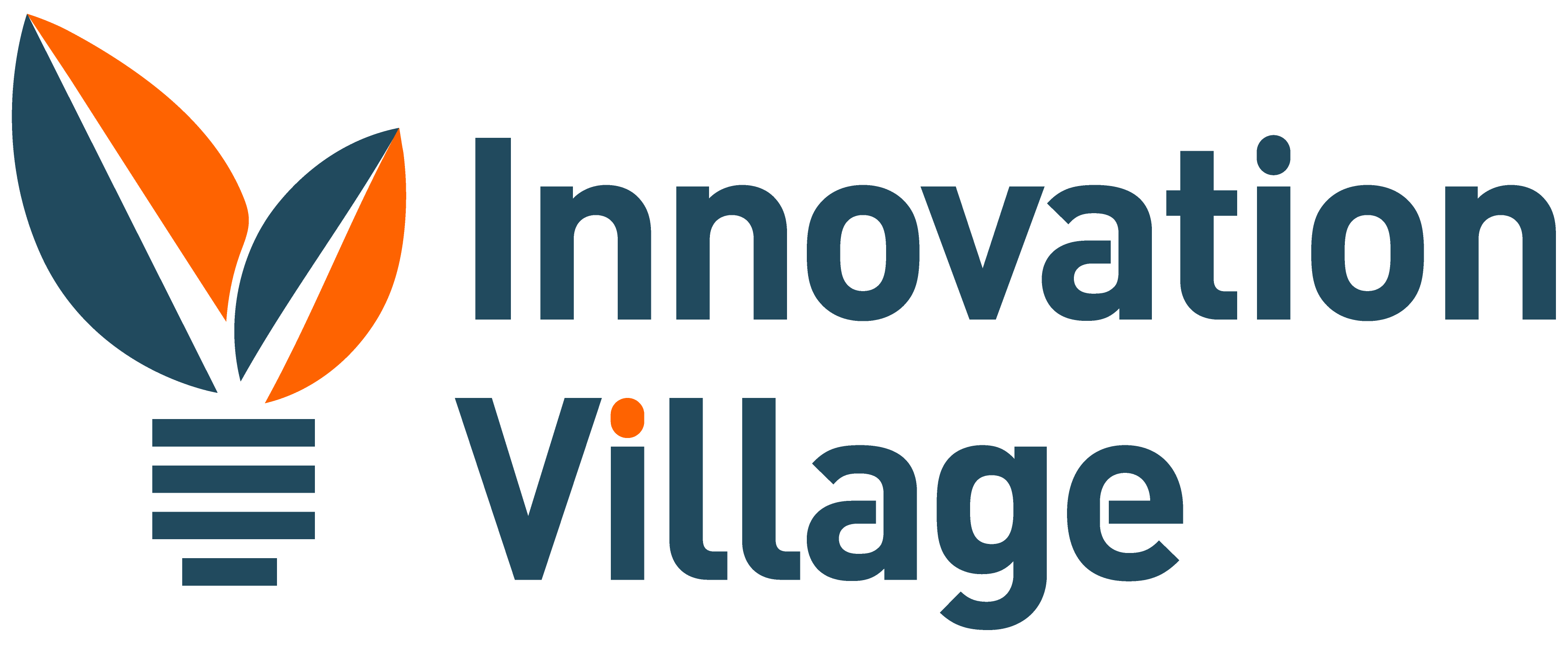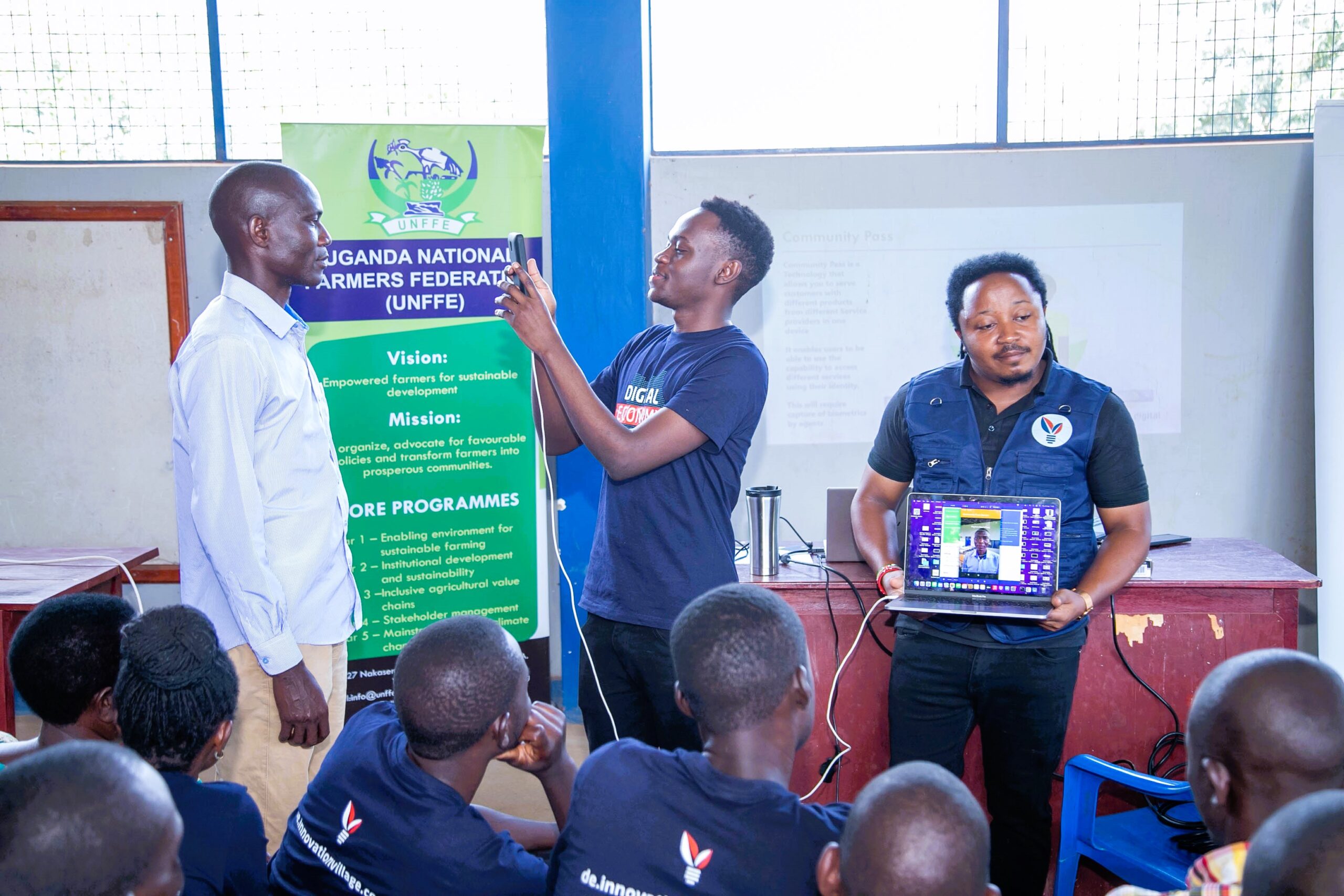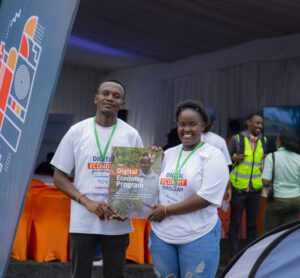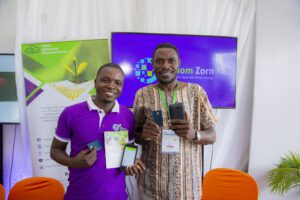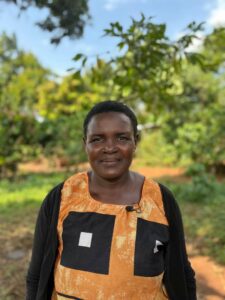In Uganda, often hailed as the most entrepreneurial nation in East Africa, the pulse of innovation beats strongest. Within its borders lies a demographic often overlooked yet brimming with potential – the last mile individuals. These are the young women and men, smallholder farmers, and small businesses scattered across remote communities, facing formidable barriers to accessing the opportunities of the digital age. In a country where digital inclusion is not just a goal but a necessity for economic growth, the challenges are stark: limited access to digital infrastructure, sparse educational resources, and a lack of connectivity to essential services.
Amidst these challenges, sobering statistics paint a vivid picture of the digital landscape in Uganda. According to Digital 2024 data share reportal global insights, over 70% of the nation’s populace are in rural areas, yet access to digital infrastructure remains a distant dream for many. With a mere 28% of Ugandans enjoying internet connectivity, the digital divide looms large, exacerbating existing inequalities. The report also continues to state that, women bear a disproportionate burden of digital exclusion, with only 19% having access to mobile internet compared to 27% of men, highlighting the pressing need for gender-inclusive digital initiatives. Furthermore, smallholder farmers, the backbone of Uganda’s economy, find themselves at a disadvantage, lacking access to digital tools and vital information crucial for enhancing productivity and bolstering profitability.
Currently, there are technology solution providers in Uganda who are pioneering solutions tailored for the last mile, offering services that address specific needs such as healthcare, education, agriculture support platforms and financial inclusion. These providers have demonstrated remarkable success in delivering impactful services to communities in remote areas. However, they face significant challenges when it comes to scaling their operations across the entire country. Limited infrastructure, logistical constraints, and a lack of resources often hinder their ability to reach all last mile individuals in need of their services.
This is where the concept of digital rails comes into play because they serve as the backbone of connectivity, providing a shared infrastructure that facilitates the seamless delivery of digital services to even the most remote communities. Through initiatives like the Digital Economy Program, a collaborative effort between Innovation Village and the Mastercard Foundation. This initiative is not just about building digital infrastructure but about forging pathways to prosperity for the often-overlooked communities in Uganda’s last mile. These digital rails are being leveraged to connect technology solution providers with last mile individuals, ensuring that no one is left behind in the digital revolution.
This initiative is utilizing a technology called Community Pass, which acts as a gateway for last mile individuals to access a wide range of digital services. By centralizing access through Community Pass, individuals can easily navigate and utilize various digital offerings, whether it’s accessing agriculture farming information, access to inputs, participating in educational programs, or managing their finances. Additionally, the Digital Economy Program offers support to technology solution providers to lay a smooth ground for them to serve last mile communities, fostering collaboration and providing the necessary resources to overcome barriers to access, this way everyone benefits.
Digital rails have revolutionized the way digital services are delivered by providing a standardized infrastructure that enables seamless connectivity. They facilitate collaboration among diverse stakeholders, including government agencies, private sector companies, and non-profit organizations, to collectively address the needs of last mile individuals. By leveraging shared infrastructure, digital rails reduce the complexity and cost associated with deploying digital solutions, making it easier for service providers to reach underserved communities.
Furthermore, digital rails promote inclusivity by ensuring that no one is left behind in the digital transformation. By extending connectivity to even the most remote areas, digital rails empower last mile individuals to access essential services, participate in economic opportunities, and improve their overall quality of life. In essence, digital rails are the foundation upon which a more equitable and prosperous digital economy is currently being built, connecting people, communities, and opportunities in ways never before possible.
The Digital Economy Program embodies the concept of digital rails – shared infrastructure that serves as the backbone of connectivity, bringing opportunities closer to those who need them most. By leveraging this innovative approach, the program is breaking down barriers and unlocking new possibilities for young people, women, smallholder farmers, and small businesses across Uganda.
One of the program’s key pillars is collaboration. Through strategic partnerships with technology solution providers, channel implementing partners, and financial institutions, the Digital Economy Program is extending its reach to even the most remote corners of Uganda. By tapping into a network of like-minded organizations, the program is accelerating its impact, reaching last mile individuals faster and more efficiently than ever before.
But the impact of the Digital Economy Program goes far beyond just connectivity. By providing digital skilling opportunities, the program is empowering communities to harness the full potential of digital solutions. From e-commerce platforms to agricultural management tools, these newfound skills are not only creating employment opportunities but also driving sustainable economic growth.
Take, for example, the partnership with Hamwe East Africa, MobiPay Agro Sys Limited, and Service cops. Through these collaborations, the program is revolutionizing the way essential services are delivered to digitally excluded communities. Whether it’s access to healthcare, education, or financial services, the Digital Economy Program is changing lives and transforming communities.
And at the heart of this transformation are the young women and men of Uganda. Through targeted initiatives aimed at creating youth employment opportunities, the program is not only building a more inclusive digital economy but also nurturing the next generation of African innovators.
But perhaps the most remarkable aspect of the Digital Economy Program is its focus on sustainability. By leveraging shared digital infrastructure and fostering collaboration among diverse stakeholders, the program is laying the groundwork for long-term impact. From empowering MSMEs to improving health and education outcomes, the ripple effects of this initiative are truly transformative.
As Uganda embarks on its journey towards a more prosperous future, the Digital Economy Program stands as a shining example of what is possible when innovation, collaboration, and inclusivity intersect. By pioneering digital rails and extending opportunities to the last mile, this initiative is not just changing communities – it’s shaping the future of Uganda’s digital economy.
